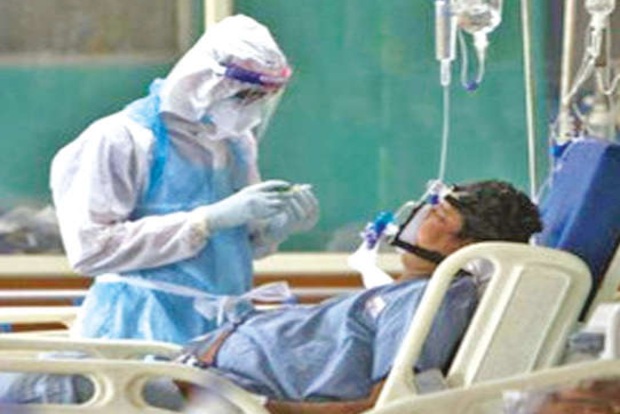Begin typing your search...
Experts: Delay in virus detection, intervention tied to high death rate
Docs say the govt protocol needs evaluation to prevent worst case scenarios

Chennai
Even as State health officials have been working round the clock to control the raging second wave in TN, the number of deaths remain alarmingly high despite most patients strictly adhering to government norms.
Experts have pointed out that the public are still unaware of the nature of the disease and the Health Department’s protocols are not up to date with the latest information on COVID-19, especially with early detection and right intervention which could save many lives.
According to them, most patients land up in hospitals many days after contracting the infection, often with 50% lung damage or more and low saturation levels. Doctors say that the right time to take an RT-PCR test would be immediately after any of the symptoms emerge. If results turn positive, anti-viral treatment must start immediately. “The virus replication occurs in the first week, which is when antivirals come into play. If the body is able to fight the mild infection with natural immunity, patients usually recover. The intake of vitamins, hydration and rest is important in this phase,” says Dr Spoorthi Arun, American Board-certified internal medicine physician at Promed hospital, adding, monitoring of the symptoms becomes very important, even in cases of false negatives.
However, if the symptoms persist even after four or five days and there is no improvement in the health condition, it is a clear indicator that the patient is heading towards a severe form of the disease when the antibodies reaction to the virus causes a cytokine storm/shower. “This is when the inflammatory markers through blood tests have to be done to check if there is no increase or at least an improvement in the health of the patient,” says Dr Spoorthi. With RT-PCR tests taking at least 48 – 72 hours in most government facilities, the crucial period of virus replication often goes untreated and the patient lands for screening when the damage is already done. As the symptoms are still mild and saturation levels are normal, most patients are advised home quarantine when the situation worsens.
Doctors say that the right time to intervene, prevent virus replication and identifying the cytokine storm is very important. In the absence of diagnostic tests during early stages of the disease, patients go into a critical stage when recovery becomes difficult. Public health experts say that initial course and mid-level course evaluation needs to be added in the state government case management protocol to prevent last minute referrals and worsening of the infection as the virus progresses.
“The RT-PCR test is necessary but even if the result is negative and symptoms persists, isolation is important. Even if the patient is under home care, it is necessary to do a blood investigation to check on blood sugar levels and complete hemogram after 4 days of the infection,” says public health expert Dr K Kolandaisamy.
Visit news.dtnext.in to explore our interactive epaper!
Download the DT Next app for more exciting features!
Click here for iOS
Click here for Android
Next Story



